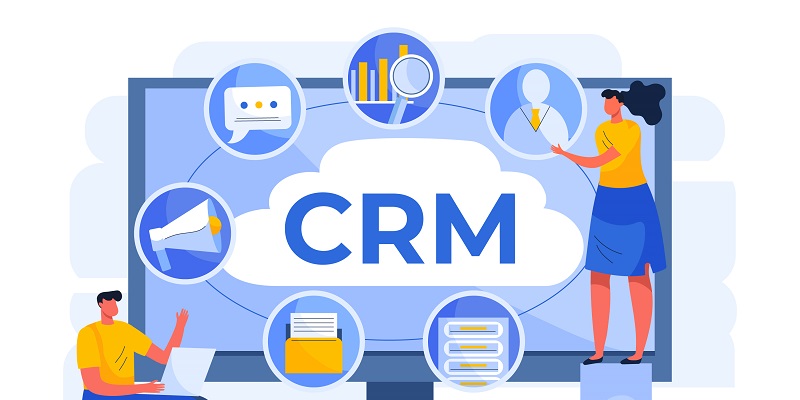Customer Relationship Management, or CRM, is a powerful tool that can foster such bonds by optimizing and managing your interactions with customers through the efficient utilization of data, and become the foundation for experience-driven marketing and generating consistent revenue.
The role of CRM in experience-driven marketing and revenue generation is crucial. With a customer-centric approach being at the core of digital marketing nowadays, having a hub that collects all information and allows you to nurture your relationships in a profitable and efficient manner is the best course of action.
The Benefits of CRM in Digital Marketing
By keeping track of your complex and dynamic data from sales leads and customers all in one place, CRM allows you to be organized, efficient, and afford better time management. This, in turn, leaves you with more impressed and trusted customers.
Organizational and Efficiency Advantages of Centralized Data
The ability to centralize customer information enables businesses to streamline their marketing efforts. By having all crucial data in one hub, you can easily access and analyze customer data to inform your marketing strategies and decision-making processes.
Efficiently managing customer data and interactions not only saves time but also creates a positive impression on customers. By utilizing CRM to provide timely and personalized responses, customers feel valued and understood, fostering stronger trust and loyalty.
The Evolution of CRM as a Marketing Strategy
Today, CRM has evolved into a leading marketing strategy that helps businesses track leads, nurture prospects, and measure the effectiveness and success of their campaigns. By gathering and analyzing customer data, CRM provides useful insights for future developments and optimizations.
Providing Useful Data and Insights for Future Developments
CRM empowers businesses by providing valuable data and insights that can drive future marketing efforts. By understanding customer preferences, behavior patterns, and engagement levels, businesses can tailor their marketing strategies to better resonate with their target audience.
CRM in Marketing: Attract, Delight, and Engage
CRM allows businesses to create an experience-driven marketing strategy through highly-targeted campaigns. By focusing on the right audience, businesses can save time and money that would otherwise be wasted on unfocused efforts. This targeted approach also helps attract potential future customers who can become part of your loyal community.
Delight: Creating a Personalized Journey to Make Audiences Feel Seen and Valued
CRM enables businesses to create a personalized journey for their customers, making them feel seen, valued, and understood. Through tailored messages, offers, and recommendations, businesses can connect and resonate with their audience on a deeper level. Personalization becomes the core focus of all marketing practices, leading to increased customer satisfaction and loyalty.
Engage: Continuous Engagement through Tracking Customer Behaviors and Preferences
While attracting and delighting are powerful attributes of CRM, they mean nothing without ongoing engagement. CRM helps businesses stay connected with their audiences by tracking customer behaviors and preferences. By understanding their needs, businesses can keep customers engaged throughout their journey, increasing the likelihood of them coming back for more.
CRM as a Must-Have Tool for Digital Marketing
As CRM has come a long way to become a must-have tool for digital marketing, it has also proven to be a pivotal force of adaptability and innovation. By leveraging CRM technology, businesses can stay ahead of the curve, adapting to changing market dynamics and consumer needs. CRM enables businesses to innovate their marketing strategies, delivering exceptional customer experiences and driving long-term success.
Customer Relationship Management (CRM) is a key component of successful marketing strategies, enabling businesses to build stronger customer relationships and drive marketing success. From optimizing data management to personalizing customer experiences, CRM empowers businesses to attract, delight, and engage their audience. As CRM continues to evolve and adapt, it remains an essential tool for businesses looking to thrive in the digital marketing landscape. Embrace the power of CRM and witness the transformation in your marketing endeavors.

